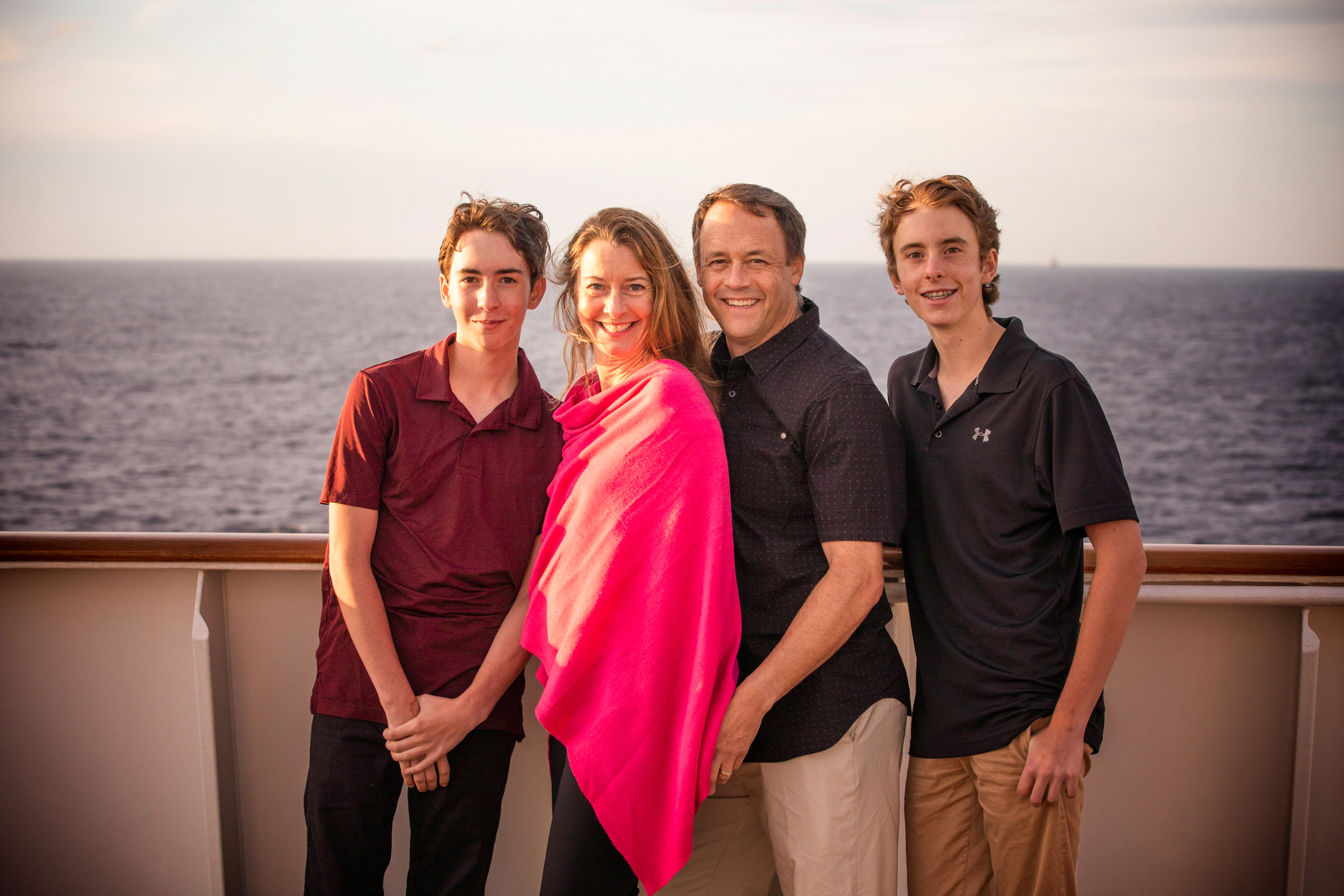
 With only 3 days in Zimbabwe, we only got a glimpse of its beauty and a limited understanding of its turbulent history. We visited the part of Zimbabwe where people flock for 2 reasons, 1) to see the famous Victoria Falls, and 2) to go on safari in Chobe Game Park in Botswana. We did both.
With only 3 days in Zimbabwe, we only got a glimpse of its beauty and a limited understanding of its turbulent history. We visited the part of Zimbabwe where people flock for 2 reasons, 1) to see the famous Victoria Falls, and 2) to go on safari in Chobe Game Park in Botswana. We did both. We went to the touristy but interesting Boma cultural dinner and took part in a fun drumming session. The boys ate the famous game meats and Jay and Luke tried the local delicacy, Mopani worms (which are actually caterpillars). We thought they were going to be fried and crunchy. Unfortunately, they are fried, chewy and dry. To make matters worse, we ate them at the Mopani worm table so we could get our certificate and didn’t have water to wash them down! Yuck!
We went to the touristy but interesting Boma cultural dinner and took part in a fun drumming session. The boys ate the famous game meats and Jay and Luke tried the local delicacy, Mopani worms (which are actually caterpillars). We thought they were going to be fried and crunchy. Unfortunately, they are fried, chewy and dry. To make matters worse, we ate them at the Mopani worm table so we could get our certificate and didn’t have water to wash them down! Yuck!  On our final day, we tried to get a glimpse into life in rural Zimbabwe by visiting a village and their chief. Although it had no electricity and was primarily a subsistence farming community, through the guidance of the chief it seemed at least to be prosperous. Although many self-sustaining villages like this are surviving on these Tribal Trust Lands, the economic and political situation in Zimbabwe seems dire.
On our final day, we tried to get a glimpse into life in rural Zimbabwe by visiting a village and their chief. Although it had no electricity and was primarily a subsistence farming community, through the guidance of the chief it seemed at least to be prosperous. Although many self-sustaining villages like this are surviving on these Tribal Trust Lands, the economic and political situation in Zimbabwe seems dire.

In 2000, President Mugabe enacted land reform, forcibly redistributing land from white farmers to Africans. That transition went poorly as the new farmers did not know how to farm and run businesses, causing Zimbabwe’s GDP and exports to plummet and inflation to skyrocket. The resulting hyperinflation led Zimbabwe to print one hundred trillion dollar notes ($100,000,000,000,000) and Luke managed to buy an old $10 billion note for his collection. The country has since adopted the US dollar and 8 other world currencies as its currencies, which has stabilized inflation, but with an estimated 80% of the population unemployed the situation seems pretty hopeless. No immediate economic or political improvements seem imminent. As we travelled around Victoria Falls, the situation was made apparent by the huge number of young men constantly trying to sell you the same selection of carvings or other items. In one makeshift covered market near our hotel, about 40 vendors were competing for the same customers with the same items. It’s hard to imagine how they were surviving on the few tourists that came there way. We will be keeping an eye on Zimbabwe. Even before we knew the unemployment statistics, we knew something was wrong by the sheer number of men in their late teens, 20’s and 30’s that seemed to be hanging around idle in the streets. That kind of environment is not one that seems to be sustainable as idle young men are a dangerous constituency.
